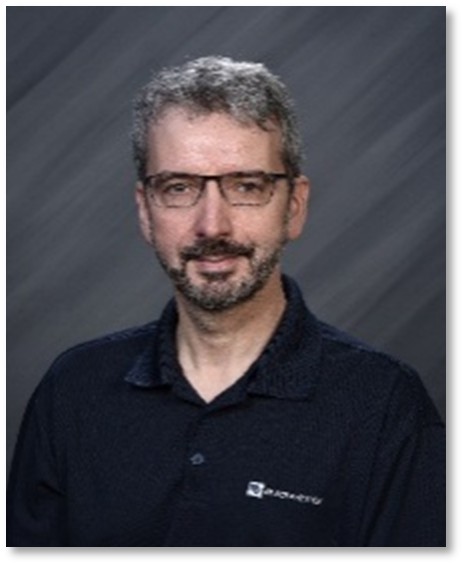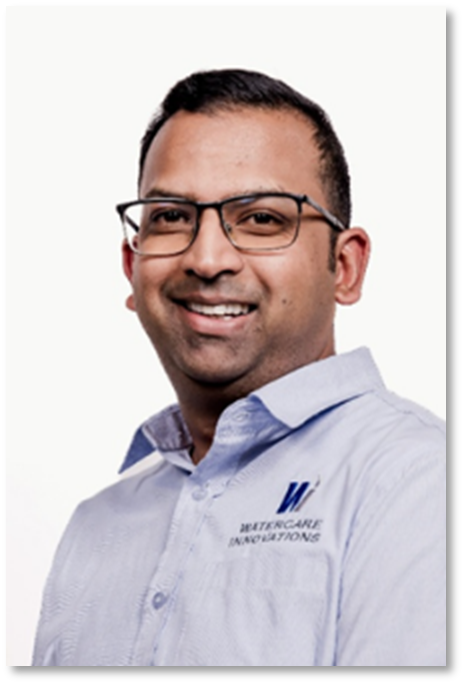The Nexus of Water and Energy Conservation Forum Industrial Energy Efficiency Education
The water that we use inside our chemical plants and oil refineries is part of massive system that includes both natural and manmade elements. In this year’s TIEEP Water Forum, we will explore the use of life cycle assessments, a case study of using membranes to save water, save energy, and improve profitability, and finally a study in an integrated water treatment strategy in a demanding environment.
This grant-funded event was held online and in-person on Thursday, March 6, 2025 at no cost to participants.
Sessions
Tools and Techniques for Assessing Sustainability in Engineering Design
In this talk, Dr. Andrew Shaw from the Engineering firm Black & Veatch, talked about applying sustainability principles in engineering design. Starting with some background information on sustainability concepts, he introduced attendees to two very different tools that can be used to assess sustainability. Firstly, he talked about the ENVISION rating system which was developed by the Institute for Sustainable Infrastructure (ISI) in 2010 specifically to assess infrastructure projects. Using a rating system that’s similar to the well-known LEED system for buildings, the ENVISION rating system has features that enable it to be applied more readily to infrastructure projects. Secondly, he talked about the use of life cycle assessments (LCA) to assess potential environmental impacts beyond just tracking carbon footprint, and through the different phases of project design, construction, use, and decommissioning. He wrapped up the talk with some general comments on meta trends affecting how we look at sustainability in engineering design.
About the Speaker

Dr. Andrew Shaw, Black & Veatch
Andrew is a Global Practice & Technology Leader in Wastewater and Sustainability for Black & Veatch, based in their Houston office.
Andrew is the past chair of the Technical Practice Committee for the Water Environment Federation (WEF) and he serves on the board of trustees for the American Association for Environmental Engineers and Scientists (AAEES). He is a past board member for the Institute for Sustainable Infrastructure (ISI) Envision review board.
He has over 30 years of wastewater treatment experience from 4 continents including operations, design, and research.
Innovative Water Solutions: Lessons from South Africa's Industrial Challenges
Drawing from South Africa's experiences with water security and a contracting industrial market has fostered innovative approaches to water challenges. An integrated water treatment strategy, incorporating chemicals, process technologies, equipment, and operational principles linked to performance metrics, has been developed in this demanding environment.
In recent years, the South African industrial market has increasingly focused on core competencies due to a constrained market. This shift has created a knowledge gap in water-related skills, causing service delivery failures both internally and externally.
By applying fundamental chemical engineering principles, such as conducting a standard water balance and superimposing salt balances or addressing bottlenecks in water-related processes, complex water challenges can be effectively managed.
This discussion highlighted case studies, including a novel ion exchange regeneration process that recycles NaCl and addresses an environmental discharge that threatened a plant shutdown; a water-stressed site that recycles cooling tower blowdown, reducing water intake while enhancing cooling tower performance; and isolating a process stream within a complex plant to recover valuable dissolved minerals, with water as a by-product, achieving an 18-month payback for the client.
About the Speaker

Rinesh Jivanji, Watercare Innovations
Rinesh Jivanji is the CEO of Watercare Innovations, a leading company in water treatment solutions in South Africa. With over 17 years of experience in the industry, Rinesh has a strong background in feasibility, design, and implementation of industrial water treatment solutions, focusing on generating tangible returns for customers. He holds an MBA as well as an MSc in Chemical Engineering and has previously worked in Research Assistant at TU Delft. Rinesh has recently relocated to Houston and is spearheading business development efforts in the Western US, driving growth and innovation in the water treatment sector.
Hydrating Energy: Water’s Impact on our Energy System
As you may know, the demand for energy has been growing and will continue to grow. Factors such as population growth, rising standards of living in developing countries, and newer trends like the increasing demand for data centers to support artificial intelligence tools will drive the need for abundant, reliable, and affordable energy. Energy is synonymous with prosperity, and to meet future demands, experts advocate for an “all of the above” energy strategy.
Simultaneously, the world faces the challenge of reducing greenhouse gas emissions. This creates a dual challenge: producing more energy while reducing overall carbon dioxide levels in the atmosphere.
An often-overlooked key enabler of our broad energy industry is water. Water and wastewater management are essential in nearly all forms of energy production and decarbonization. Given the finite amount of water on Earth and relatively small reserves of fresh water, it is crucial to use water wisely. Since we cannot create more water, we must meet demand through better global planning, process optimization, water reuse, and utilizing less conventional industrial water sources.
In this talk, Shil discussed the interdependency of water and energy, including decarbonization efforts. He delved into specific applications and highlight the critical role of chemical engineering in navigating these constraints to enable energy prosperity.
About the Speaker

Shiladitya Basu, STANTEC
Shil is a Principal Chemical Engineer and an Industrial Water Practice leader at Stantec. He holds a degree in Chemical Engineering from Case Western Reserve University and is a Professional Engineer in Texas and Massachusetts. Mr. Basu began his career in 2006 with Siemens Water Technologies, Memcor Division, which is now a part of Dupont, and worked in the municipal water industry for six years before moving to Houston to apply membrane and chemical processes for water treatment in the oil and gas industry. His scope of work has grown to envelop industrial water needs holistically and at Stantec he works to connect the many dots that the industrial client base needs to ensure reliable water sourcing, treatment, reuse, and discharge compliance.
Exclusive Session: Economic Evaluation of a Desal & Brine Valorization Plant
This exclusive session was only available live and is not available as a recording.
Sustainable water management is now a necessity for industries as water resources are increasingly stressed across many parts of the world. The water crisis is a risk that can significantly impact a project’s financial success based on factors such as declining water resources, deteriorating water quality, more robust treatment requirements, stricter water discharge regulations, and higher energy needs.
A circular economy approach in water management can help mitigate the risk associated with the global water scarcity crisis by increasing the utilization of available reject streams. This requires using minimum liquid discharge (MLD) or Zero Liquid Discharge (ZLD) design strategies to reduce water consumption, increase recovery, lower energy usage, reuse water, and valorize the waste streams. Innovative water technologies such as Brine Concentration Membranes (BCMs) can be considered. Tamin compared the economics of producing solid products for additional revenue to the traditional method of disposing brine concentrate. Specific examples are described.
About the Speaker

Tamim A. Popalzai, FLUOR
Tamim A. Popalzai is the Process Engineering Manager, Water Technology & Engineering at FLUOR. Tamim has over 25 years of experience in process design of water / wastewater treatment, desalination, modeling, and simulation of water systems in various sectors such as Oil/Gas, Petrochemicals, Renewable Energy, Semiconductor, Mining & Metals, Pharmaceuticals and Municipal.
Tamim has specific expertise in the financial lifecycle modeling of water projects in determining economic viability and profitability. He has carried out pilot studies and modeling/simulation for water treatment projects and supported operations in troubleshooting.
Tamim has authored technical papers on water treatment, desalination water costs, and brine valorization and has delivered presentations in several water conferences. He also helps in business development, technology assessment, and training. He serves as Fluor’s Subject Matter Expert (SME) for water / wastewater treatment and desalination in Houston, Texas.
Want to make sure you don’t miss out next time?
Upcoming Energy Events
About the Texas Industrial Energy Efficiency Program
The mission of the Texas Industrial Energy Efficiency Program (TIEEP) is to provide thought-leadership, sharing ideas, technologies, opportunities and timely information to Texas industries on ever-improving energy intensity, reduced environmental impact, resilience, and enhanced economic development. TIEEP’s industry focus is the oil refining and chemicals sectors. TIEEP is organized by UH Energy and funded through a grant from the State Energy Conservation Office (SECO).
More about TIEEP